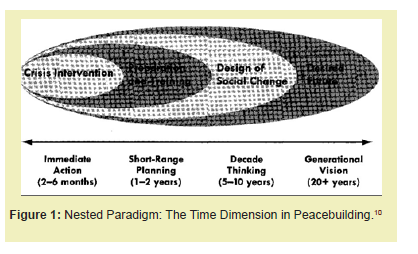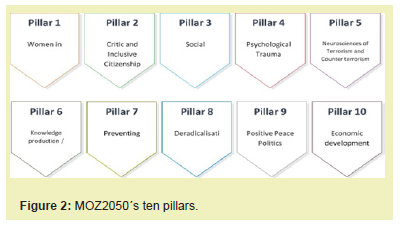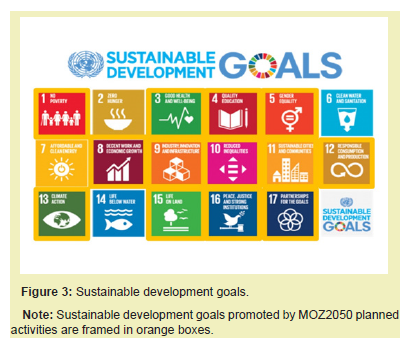Mozambique, a nation with a tumultuous history marked by colonization, civil war, and ongoing socio - economic challenges, stands at a critical juncture in its development trajectory. Since gaining independence from Portugal in 1975, Mozambique has grappled with political transitions, armed conflict, and the exploitation of its abundant natural resources. Despite its mineral wealth, particularly in the Northern region, the country continues to face pervasive issues of poverty, inequality, and social injustice. The signing of the Peace Agreement in 1992, which brought an end to the civil war between the Mozambique Liberation Front (FRELIMO) and the National Resistance of Mozambique (RENAMO), marked a pivotal moment in the nation's history. However, the aftermath of conflict has left deep scars on Mozambican society, exacerbating existing vulnerabilities and fostering conditions conducive to violent extremism. Cabo Delgado Province, renowned for its mineral riches yet plagued by poverty and instability, has become a focal point of violent extremism, notably with the emergence of the self- proclaimed Islamic State. The region has witnessed a wave of terrorist attacks, leading to mass displacement, loss of life, and profound psychological trauma among its inhabitants, particularly women, children, and persons with disabilities. In response to this complex crisis, the Mozambique 2050 (MOZ2050) Strategic Plan has been formulated, representing a holistic and innovative approach to peacebuilding and resilience-building. Grounded in extensive contextual analysis and stakeholder consultations, this multifaceted strategy aims to address the root causes of extremism while fostering social cohesion, economic empowerment, and sustainable development.
Keywords: Systemic peacebuilding, Cabo delgado, Mozambique, Armed conflict, Peace psychology, Counter terrorism
The Republic of Mozambique, a country with 801,590 km2 was a Portuguese colony until it became an independent country on the 25th June 1975. From that date until 1990, the People's Republic of Mozambi que was a one-party socialist country. In fact, from 1977 to 1992 the country went through a civil war, which opposed FRELIMO (Mozambique Liberation Front) to RENAMO (National Resistance of Mozambique), in what is known as the 16-year war and whose DDR process ended only in June 2023, with the closure of the last RENAMO base commemorated by the presidents of FRELIMO and RENAMO.
The signing of the Peace Agreement in 1992 allowed RENAMO to recognise the government and its institutions, appoint administrators in the districts where it had acquired full control during the war, and agree to a process that culminated in the holding of general elections. More than opening up the political space to a plural democracy, the agreement made it possible to accommodate RENAMO in a new political order.
Although Mozambique is a rich country in minerals (the world’s biggest ruby gem, is from Mozambique, and was sold in June 2023 for 34.8 million dollars)1
and gas (one of the world’s largest LNG basins), mostly in the Northern region, like Cabo Delgado, there is still famine, extreme poverty and social inequity in all the territory. The population doesn’t understand why all the richness isn’t translated in a higher quality of life for everyone, knowing the profits that are being made by the mining companies, which tend to hire people from abroad, not investing in local population. This, adding to recent corruption cases amplified by the media, which highly contributed to the extremist narrative, with a conspiracy that the Government is the one funding the terrorist movement in the Cabo Delgado (the self-proclaimed Islamic State), so they would force the population displacement needed for the mining industry to expand. Currently the Central Government is directing part of the profits from the mining industry to the regions out of the capital, investing mainly in agriculture, clean water distribution, and electricity, which isn’t available in all Mozambican territory.The economy is mainly focused in the daily needs of subsistence, as 10% of population is poor and responsible for only 1% of the expense.2 However, the same proportion of the richest population is responsible for 40% of the expenses. Nonetheless, every family spends, in average, only 135 dollars each month, ranging from 196 dollars in the cities, and 104 dollars in rural areas. According to the Family Budget Enquiry 2022, which interviewed 15.000 families, unemployment rate is 18%.
Also, the feelings of social injustice, from knowing the quality-of-life other parts of the world achieved from mining natural resources, have also contributed to joining the terrorist movement, resourcing to micro - credits in earlier stages, and leaving their houses looking for well paid jobs, that the self-proclaimed IS’s recruiters promise them, as disseminated in the national news, arresting around 20 young people each day, trying to travel to join the movement.
Cabo Delgado Province, the countries’ richest in minerals and the poorest in income, has been afflicted by violent extremism causing around 1.028.743 IPD as reported by the International Organization for Migration.3 Indeed, from October 2017 to July 2023, 1.659 incidents of organised violence were reported, with a total of 4.713 deaths, of which 2.018 were civilian fatalities.4 Of these, the internally displaced people (IDP) that will need a special attention, and intervention for trauma-related disorders are children, adolescents, and women (as a particularly vulnerable group to violence and discrimination), especially those with any kind of disability.5
In fact, the population is being exposed to a situation of high uncertainty with evident intergenerational trauma. Being that trauma, trauma-related disorders, and psychological vulnerability in general, are risk factors for radicalization,6 particularly in areas that lack psychological support services and mental health trained professionals on both trauma intervention and prevention and counter violent extremism, it urges to increase mental health structured response to IDP. Within existing community resilience mechanisms, there is the need to prevent future potentially traumatic events, promoting a sense of community and social cohesion, and incorporating ceremonial moments and cultural rituals reducing collective suffering.7
In a needs assessment study conducted in 2021, 30 IDP were interviewed, we aimed to establish mental health and psychosocial support (MHPSS) needs, and the implementation conditions. The participants’ ranged from 12 to 63 years old, and were from the districts of Palma, Quissanga, Muidumbe, Mocímboa da Praia, and Ibo. All of the participants had fled from terrorist attacks, even though they knew the possibility of such event happening. Some only escaped at the second attack or at the warning of the second attack. Loss and grief were reported in 80% of the interviews, whether material loss, grief, or not knowing the whereabouts of a or several relatives (kidnapped or missing in result to the attack). Symptoms of probable trauma and psychological suffering were present in 66.7% of the participants, with a predominance of avoidance strategies, insomnia, anxiety, hopelessness due to the perception of insufficient support (to refer that the World Food Program has been rationing food to 40 per cent of the daily calorie intake requirement, and in 2023 didn’t have any food in their storages in Cabo Delgado, waiting for the USA’s donation, which was only for another 6 months). Nonetheless, this population has strong post-traumatic growth factors present in 33.3% of the participants, that should be promoted at individual and community levels, such as spiritual beliefs and religious community interaction, and interpersonal relationships.
Several causes are cited to justify joining to violent extremism: socioeconomic, religious, and psychological. The Life Psychology perspective assumes that all individuals are motivated and thrive when given the opportunity to act in their lives. When the challenge is within one's ability, the subject is in flux; however, when the challenge is above or below one's ability, the individual is in non-flux. Various situations (e.g., lack of legal options, lack of adventure, unemployment, lack of prospects) can make it difficult or impossible to enter into flow, since active participation is either real or perceived barred to them (resulting in the same psychological effect as the former). Two options for activism arise, in the quest to regain their participation in society: membership of legal activist groups or membership of illegal groups. In other words, in the search for a greater sense of agency, and in an attempt not to fall into hopelessness, the individual seeks options that allow him to regain control of his life either by legal or illegal means of greater participation in society.8
Trauma in its various aspects (individual, community and intergenerational) seems to be present in the Mozambican population, which for centuries have experienced violence, ever since the Portuguese occupation and slavery. More recently, the War for Independence, and the subsequent process of Civil War (the 16 years war, as it is called), with little intervention in the psychological trauma of the community, by mental health professionals, as they are still not enough to all the needs, currently. Therefore, there is a greater fragility of the individuals who were directly or indirectly affected and who were not the target of an individual psychological or traditional intervention.
To respond to such a complex issue, only a comprehensive, systemic, approach, which includes not only a targeted response to the risk factors of joining violent extremist movements with the promotion of social resilience, but also promotes processes leading to positive peace, like increasing mental health professionals skills to address trauma-related disorders, increasing local and regional mental health services capacity, minimisation of the psychological impact of trauma, gender equality, promotion of social justice, equal opportunities, MIS.9 This is a systemic community-centred process, since, when considering a political and socioeconomic system, the processes of adaptation and response to shocks or reform changes are not managed exclusively by the state and its institutions, and society relies on non-state structures with their own systems and real and effective capacities for organisation, adaptation and continuous learning. Social cohesion, social networks (formal and informal), cultural and social memory, trust bonds between people and between organisations, rejection, and penalization of irregularities according to society, private and informal institutions that regulate economic activities, resource use rights and dispute resolution, are essential sources of resilience in society. In this way, the adoption of processes leading to the positive and sustainable peace that we aim for, considering the high number of affected people, must include grassroot training, stigma reduction, and psychosocial work in post-conflict trauma-related disorders. In order to achieve this goal, one must work with local leaderships, leaders of Mozambican Civil Society Organizations, community developers, local health officials, and resettlement camp leaders.10
Beyond the visible attack in the loss of life and destruction of infrastructure, terrorism is a deliberate act to destroy the social, emotional and economic fabric of communities.11
MOZ2050: Strategic Pillars and Goals
Considering the context of the country, the real needs in the field (assessed both by the work in it and by several round tables and scientific meetings with professionals from different areas of knowledge) and using the strengths and opportunities of professionals in Mozambique, the MOZ2050 Strategic Plan emerges, based on 10 pillars, which are complementary to each other. It should be emphasised that this is a holistic plan, with a comprehensive, systemic, multisectoral, dynamic approach, to be developed in a transdisciplinary team, with more than 200 activities to be carried out gradually and consequently, with short and medium-term application, contemplating the long-term impact. to be developed in its lifetime, because as Lederach (1999) argues, to achieve the desired future in peacebuilding in disagreed societies, more than 20 years are needed Figure 1.


All the pillars presented in Figure 2 will:
- Foster an innovative systemic peacebuilding strategy by incorporating lessons learned from programs conducted in other regions of the world (e.g., Afghanistan, Pakistan, Somalia, Kenya, Rwanda);
- Promote the collaboration and partnerships of various national and international actors and stakeholders;
- Respond to the needs identified in the prior analysis;
- Contribute to a cohesive national identity, with not only inclusion, but mainly respect and recognition of African and Mozambican culture in particular.
- In its totality, contribute to the promotion of 11 of the 17 Sustainable Development Goals foreseen for 2030, with an eye on those that will still be defined for 2050.
- To build the capacity of CSOs, state actors, professionals from various fields (e.g. the judiciary, health, education), religious and political leaders at all levels and others who may prove important for the realisation of the objectives of this Strategic Plan - MOZ2050;
- Enable the promotion of attitudinal change, in addition to behavioural change, in a gradual, consistent, dynamic and interconnected approach across pillars.
- In an interconnected way, facilitate sustainable peacebuilding through the Systemic Peace Model and a reconciliation of communities affected by violent extremism, over time, with a generational vision of the expected future for them, to be drawn with their own elements.
- Learning from past lessons and peacebuilding contexts, this programme reflects a comprehensive approach, gathering several deradicalisation programme typologies (e.g., socio -cultural, psychological, religious, education, vocational, extracurricular), but also contemplates several systems which need to be reinforced, in order to empower local culture, national identity, and economy, in order to achieve sustainable peace. This also comprehends a paradigm shift in Mozambique, since only this year they fully complied to the Peace Agreements signed in 1992, surrendering all the weapons to a third party as distrust is still present.
All the 10 pillars are interconnected, and they include activities to promote 13 of the 17 Sustainable Development Goals (no poverty, good health and well-being, quality education, gender equality, decent work and economic growth, industry, innovation and infrastructure, reduced inequalities, sustainable cities and communities, responsible consumption and production, climate action, life on land, peace, justice and strong institutions, partnerships for the goals), as evidenced in Figure 3.

The MOZ2050 Strategic Plan represents a paradigm shift in Mozambique's approach to peacebuilding, transcending traditional silos and embracing a systemic, multidisciplinary framework. By leveraging the strengths and opportunities inherent in Mozambican society, this comprehensive plan endeavors to address the multifaceted drivers of violent extremism while promoting inclusive governance, cultural heritage, and national identity.
Central to the effectiveness of the MOZ2050 Strategic Plan is its recognition of the interconnected nature of peacebuilding interventions. The ten pillars outlined within the plan encompass a wide range of initiatives, spanning from psychosocial support for trauma-affected populations to capacity-building for civil society organizations and local leaders. Moreover, by aligning with the Sustainable Development Goals (SDGs), the plan underscores the intrinsic linkages between peace, development, and human security.
NA critical aspect of the MOZ2050 Strategic Plan is its emphasis on community resilience and grassroots empowerment. Recognizing the pivotal role of local actors in sustaining peace and countering extremism, the plan prioritizes initiatives that foster social cohesion, dialogue, and reconciliation at the community level. By nurturing inclusive and participatory processes, the plan seeks to engender a sense of ownership and agency among affected populations, thereby enhancing the long-term sustainability of peacebuilding efforts.
Furthermore, the MOZ2050 Strategic Plan adopts a forward-looking perspective, acknowledging the enduring nature of peacebuilding processes. In recognizing the intergenerational impacts of trauma and conflict, the plan seeks to lay the groundwork for sustainable peace and resilience-building over the coming decades. By investing in education, youth empowerment, and cultural heritage preservation, the plan aims to break the cycle of violence and foster a culture of peace for future generations.
In conclusion, the MOZ2050 Strategic Plan represents a bold and visionary blueprint for peacebuilding and resilience-building in Mozambique. By embracing a systemic, multidisciplinary approach and leveraging the nation's strengths and opportunities, this comprehensive strategy holds the potential to foster lasting peace, social cohesion, and sustainable development in Mozambique and beyond.
None.
This Research Article received no external funding.
Regarding the publication of this article, the authors declare that they have no conflict of interest.
- 1. Holland O. Largest ruby ever to come to auction sells for record-breaking $34.8 million. 2023.
- 2. Ernesto R. Inquérito sobre Orçamento Familiar 2022 revela desinteresse dos moçambicanos por educação. O País.
- 3. International Organization for Migration. SITUATION UPDATE | NOVEMBER-DECEMBER 2022 (Northern Mozambique Issue).
- 4. Cabo Ligado. Weekly: 3-9 July 2023.
- 5. World Health Organization, War Trauma Foundation and World Vision International. Psychological first aid: Guide for field workers. WHO: Geneva; 2011.
- 6. Radicalisation Awareness Network. Extremism, Radicalisation & Mental Health: Handbook for Practitioners. 2019.
- 7. IASC Guidelines on Mental Health and Psychosocial Support in Emergency Settings. Geneva, IASC. 2007.
- 8. Bertelsen P. Danish Preventive Measures and De-radicalization Strategies: The Aarhus Model. From the Desert to World Cities: The New Terrorism, Panorama: Insights into Asian and European Affairs. 2015:pp.241-253.
- 9. Rodrigues C. Contributo Para Uma "Estratégia Abrangente" De Gestão De Crises Na Reconstrução Do Estado E Da Sociedade. Cadernos IDN. Edited by Instituto da Defesa Nacional. 2012.
- 10. Lederach JP. Building peace: sustainable reconciliation in divided societies, United States Institute of Peace Press. 1999.
- 11. Serra CM, Pires D, Faria J, et al. Intervenção Psicológica em Crise e Catástrofe. Ordem dos Psicólogos Portugueses. 2015.

